Bruxism / teeth grinding is a condition in which people grind, chew or clench their teeth either while sleeping or while the are awake.
People with severe bruxism can fracture dental fillings or cause other types of tooth damage. Severe bruxism has also been blamed for some cases of temporomandibular joint dysfunction (TMD), mysterious morning headaches and unexplained facial pain.
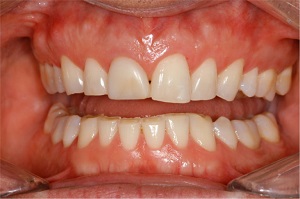 |
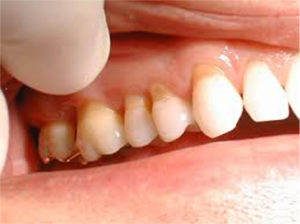 |
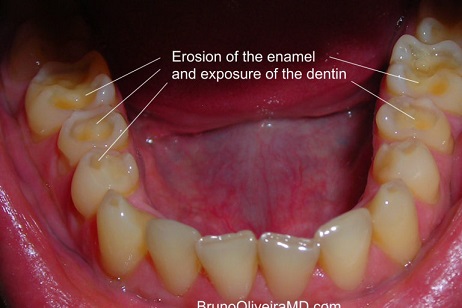 |
|
Questions will be asked about your current life stresses, your general dental health and your daily medications. He or she also will want to know whether you routinely drink beverages containing alcohol or caffeine, because both of these chemicals seem to increase the tendency to grind your teeth.
If you share your bedroom, the dentist also may want to ask that person about your sleep habits, especially about any unusual grinding sounds heard during the night.
Careful examination of your mouth and jaw will be carried out as well as for any obvious dental abnormalities, such as broken teeth, missing teeth or poor tooth alignment. If your dentist suspects that you have bruxism that is related to dental problems, he or she may conduct a more detailed assessment. In addition to checking your “bite,” the dentist will examine your teeth and gums for damage caused by bruxism. The dentist will also take a series of mouth X rays.
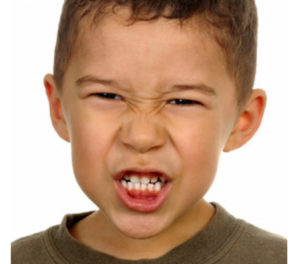
If your child grinds or clenches his or her teeth, discuss the problem with your family dentist. Although many children eventually outgrow bruxism, even short-term tooth grinding can cause damage to your child’s permanent teeth.
Usually children between 3 to 10 years of age who have bruxism will spontaneously stop by the age of 13. Yet considerable precautions need to be taken to preserve the tooth structure.
In teenagers and adults, the duration depends on the cause. If its due to stress the habit will not go away unless the stress factor is removed and in case of dental related problems, it will stop when the problem is corrected.
If the cause of bruxism is stress you need to get help by professional counselling and find a way to manage the stress and relax If your bruxism is related to stress, you may be able to prevent the problem by seeking professional counseling or by using strategies to help you learn to relax. Also, try cutting down on stimulants such as tobacco and caffeine.
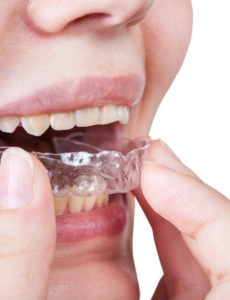
In both children and adults, tooth damage related to bruxism can be prevented by wearing a night bite plate or a bite splint (a dental appliance worn at night to stop teeth grinding).
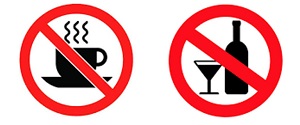 |
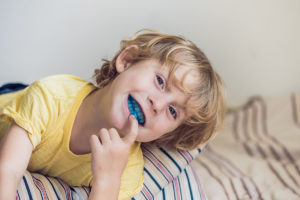 |